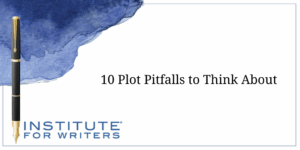
10 Plot Pitfalls to Think About
Plot can be tricky, and, as a writer, you need to be aware of what makes or breaks plot. Take a look at 10 different things to avoid in your own writing.
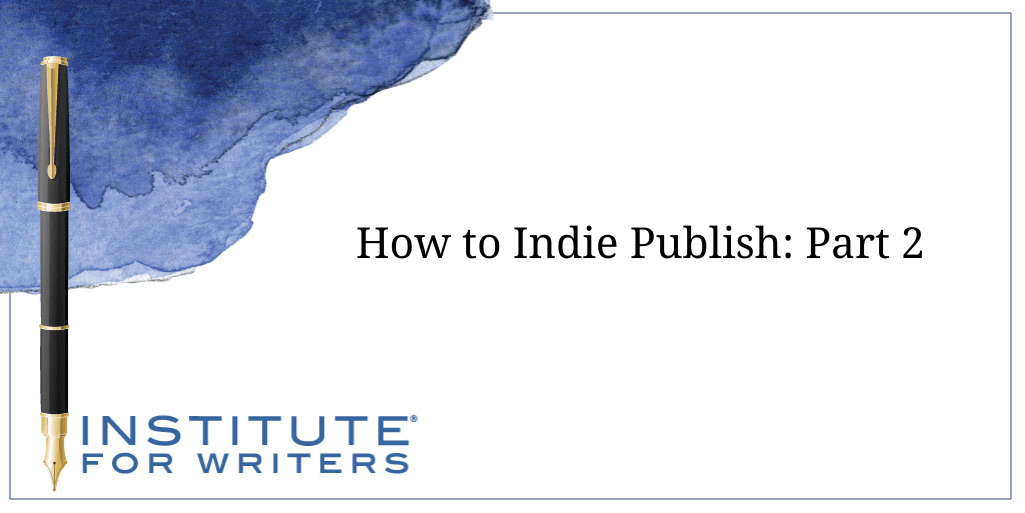
Independent publishing, or indie publishing, is a broad topic with many nuances, so we’ve written two step-by-step articles with foundational information to get you started! For the first five steps, read part one {steps 1 – 5}! This article, part 2, gives insights on finding an editor, beta readers, and more! Let’s go!
There are multiple types of edits, but because this article is an overview of the process, it focuses on developmental, line, copy editing, and proofreading.
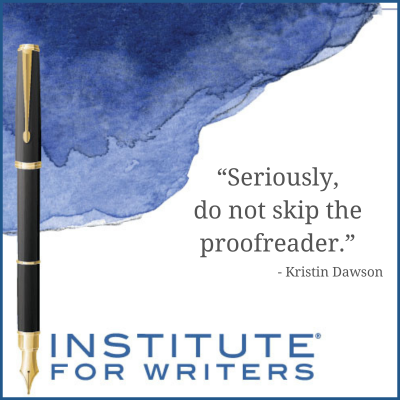 Look for a developmental editor at this point in the process. Dev editors look at the big picture. If you had a great alpha reader, this step might be relatively smooth (and save you money). The developmental editor focuses on broad strokes in a manuscript, like making sure the world-building isn’t a broken pile of sticks, the plot holds water, and the characters are fully fleshed-out.
Look for a developmental editor at this point in the process. Dev editors look at the big picture. If you had a great alpha reader, this step might be relatively smooth (and save you money). The developmental editor focuses on broad strokes in a manuscript, like making sure the world-building isn’t a broken pile of sticks, the plot holds water, and the characters are fully fleshed-out.
It’s important to find editors who have worked on other successful books in your subgenre, especially the early editors who help mold the story. One way to find editors is to look at those top books you’ve been studying (see step 1) and see who the authors thank in the backmatter. Many authors give a shout-out to their editors.
Here is an optional method for researching editors for your project:
Next, look at their rates. Now is the time to review your budget and see which of those editors will fit within your financial parameters.
Now, you’ll have a “short list” of editorial options. Email the editors and let them know that you’re an author looking for an editor, and ask if they’re taking on any new clients. Once you get the conversation going, you’ll want to know their timeline. Some top editors are booked up for more than six months.
Get a sample edit chapter from two editors, if possible. It’s always difficult to tell an editor they’re not the right fit for you after they give you a sample chapter, but remember that being an author is a small business. And authors need to make decisions that are best for their business. If you know one editor is a better fit for your writing, it’s essential to make those tough decisions early rather than struggle through with an editor who isn’t a good fit.
 You’ll sign a contract once you find an editor who fits your needs. You’ll want to comb through the contract to know exactly what they’re offering. For example, will your editor do a second pass on your work after you make the changes? You need to know and agree on the process in advance. Also, you want a timeline for when they’ll complete the work.
You’ll sign a contract once you find an editor who fits your needs. You’ll want to comb through the contract to know exactly what they’re offering. For example, will your editor do a second pass on your work after you make the changes? You need to know and agree on the process in advance. Also, you want a timeline for when they’ll complete the work.
Unlike alpha readers, beta readers read your story much later in the process. The story should be your best work, but send the manuscript before you employ a copy editor or proofreader. The beta reader needs to get the full experience of the story in order to give quality feedback.
Some authors find beta readers after the line edit (see step 8). It depends on how much of the story you’re willing to change after getting beta feedback. If the story is inflexible, you might as well do the line edit first. If you’re willing to make broader, sweeping changes based on your beta readers, consider waiting to have your lines perfected until after the beta feedback.
You can read all about beta readers in this IFW article.
Once you’ve completed your developmental edits, it’s time to begin the line edits. This is where authors elevate the language, ensure all the emotional beats are singing, fine-tune the foreshadowing, and dial in all the details.
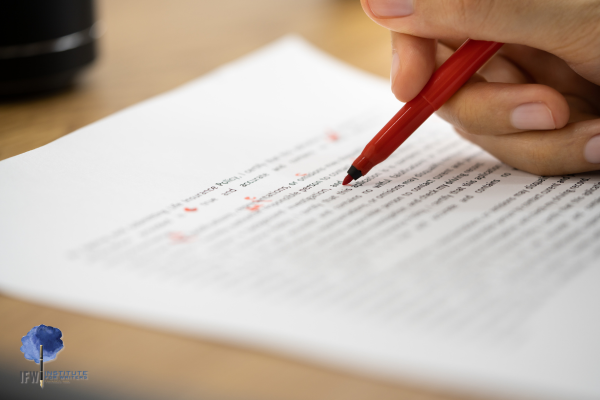 Many people use tools like Grammarly or ProWritingAid before sending the story to the line editor. These online tools can help writers create their best work, and then they can send the story to the line editor. The line editor will love working with a story that is already great–because then they can help a writer make it phenomenal!
Many people use tools like Grammarly or ProWritingAid before sending the story to the line editor. These online tools can help writers create their best work, and then they can send the story to the line editor. The line editor will love working with a story that is already great–because then they can help a writer make it phenomenal!
Hot tip: After the line editor, sending the story to fresh beta readers who have never seen the manuscript isn’t a bad idea. They can confirm that you successfully made all the changes your earlier betas suggested and tell you if there’s anything you missed. There’s still time to tweak the bones of the story before it goes to the copy editor.
Sometimes, line editors and copy editors will do a “combo” edit, so be sure to ask for specifics on what the editor offers. A copy editor is looking at the finer details of each line. They’re checking for “mirror words,” awkward sentences, and consistency errors (for example, an author might be capitalizing a special magical word in the story in some places but not others, or they might be using one particular word or phrase too often in the manuscript). They will also likely flag repeating grammatical and spelling errors.
The proofreader is the final polish for the story. They fix the commas, quotation marks, misspellings, and reduce an over-dependence on em-dashes—IFYKYK. If you do nothing else, hire a proofreader. As writers, we tend to skim over our errors. Our brains just do not see the little mistakes; we’ve looked at these same lines a hundred times, so our brains “fuzz” the details. Readers will notice if the proofreading is poorly done, and they will comment on it in the reviews.
Seriously, do not skip the proofreader.
ARC readers generally receive the book early, and the author hopes that they’ll leave a review once it hits the digital “shelves.” ARC readers get a free copy of the book and are not obligated to finish it or give a positive review. But if you’ve pitched the book appropriately, most readers will gobble it up, love it, and leave rave reviews.
 Sometimes, ARC readers are referred to as a “street team.” But, generally, a “street team” is a closer-knit group of readers who have access to the author. Often, there is a group (on Facebook, Discord, etc.) where the readers can engage with each other and the author as well. Street teams often have insider knowledge of the book and the plans for the rest of the series. They also generally know the author’s brand and are often fans of their other books. These can be great groups, and the readers are a phenomenal help.
Sometimes, ARC readers are referred to as a “street team.” But, generally, a “street team” is a closer-knit group of readers who have access to the author. Often, there is a group (on Facebook, Discord, etc.) where the readers can engage with each other and the author as well. Street teams often have insider knowledge of the book and the plans for the rest of the series. They also generally know the author’s brand and are often fans of their other books. These can be great groups, and the readers are a phenomenal help.
Here are a few tips to help you have a positive experience with your ARC readers or “Street Team.” Pick and choose the best options based on your goals:
Now, your book is ready for publication! You’ll upload the final file and get ready to market your story!
There are many details when choosing to indie publishing, and these two articles give writers an idea of what to expect. Preparing a book to bring to market is a lot of work, but adding a quality book to your “author library” is worth the effort.
Kristin J. Dawson is a non-recovering chocolate and romantic English movie addict who loves to read science fiction and fantasy. You can find her most often indulging her favorite things at 2 am — night owls unite! Kristin writes high fantasy with political intrigue, a bit of romance, and of course, magic. She’s was a 2019 UTOPiAcon Debut Book Award Nominee and Swooney Award Nominee. When she’s not writing, taking her kids on mountain adventures, or cleaning out the chicken coop, she’s probably trying to talk her author friends into more shenanigans.
Chat with Kristin on Instagram (@KristinImagines), on Facebook (@KristinJLiterary), or her website at kristinjdawson.com.

Plot can be tricky, and, as a writer, you need to be aware of what makes or breaks plot. Take a look at 10 different things to avoid in your own writing.
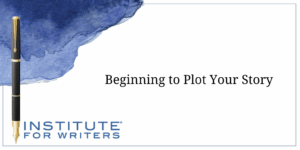
Plot is more than just the chain of events within a story. There are so many elements to plot to consider when writing. Let’s dive into those elements.
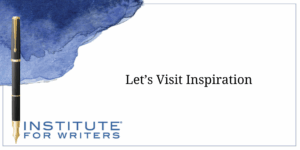
Visiting new places is key to exploring new ideas and finding inspiration. Let’s see the places you can go this summer to spark your next story.
1000 N. West Street #1200, Wilmington, DE 19801
© 2024 Direct Learning Systems, Inc. All rights reserved.
1000 N. West Street #1200, Wilmington, DE 19801
© 2025 Direct Learning Systems, Inc. All rights reserved.
1000 N. West Street #1200, Wilmington, DE 19801
©2025 Direct Learning Systems, Inc. All rights reserved. Privacy Policy.